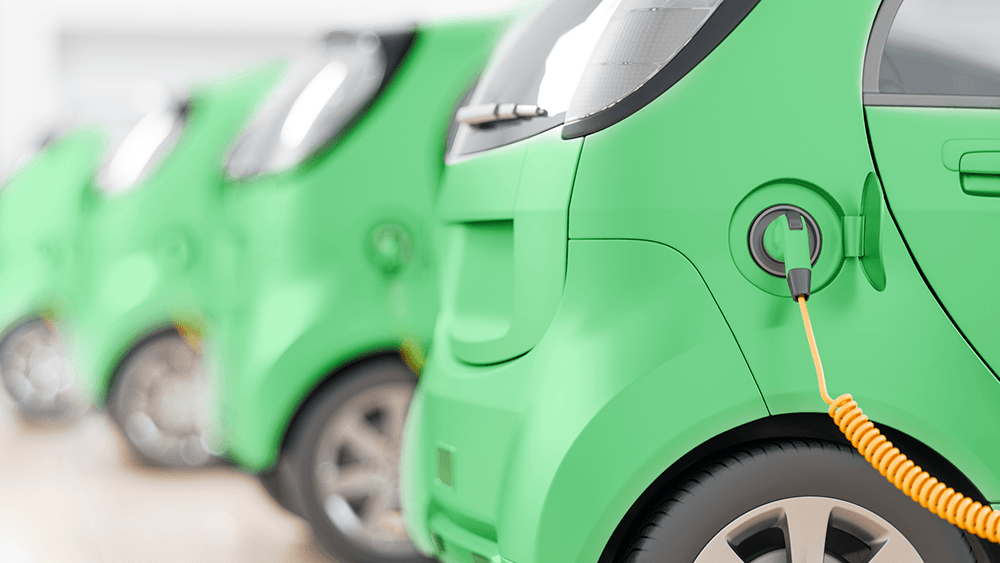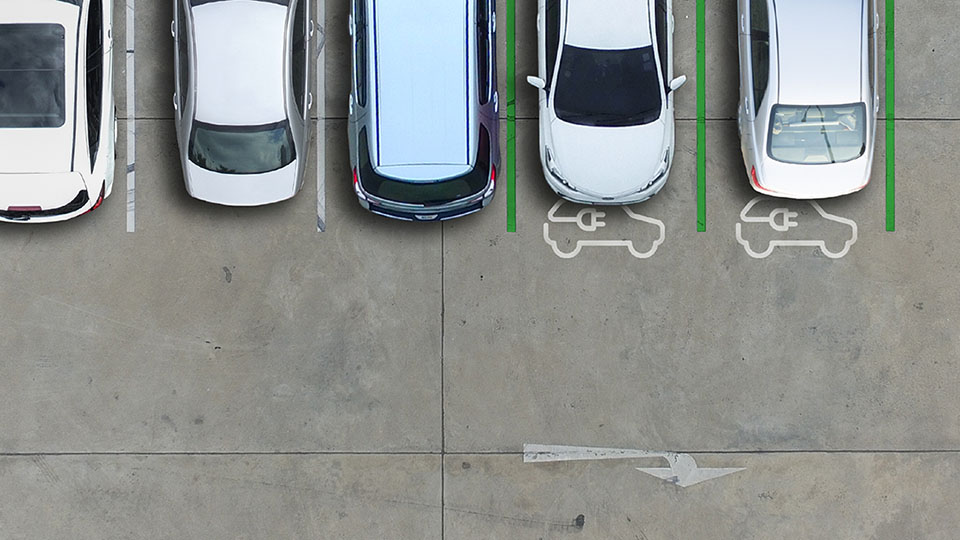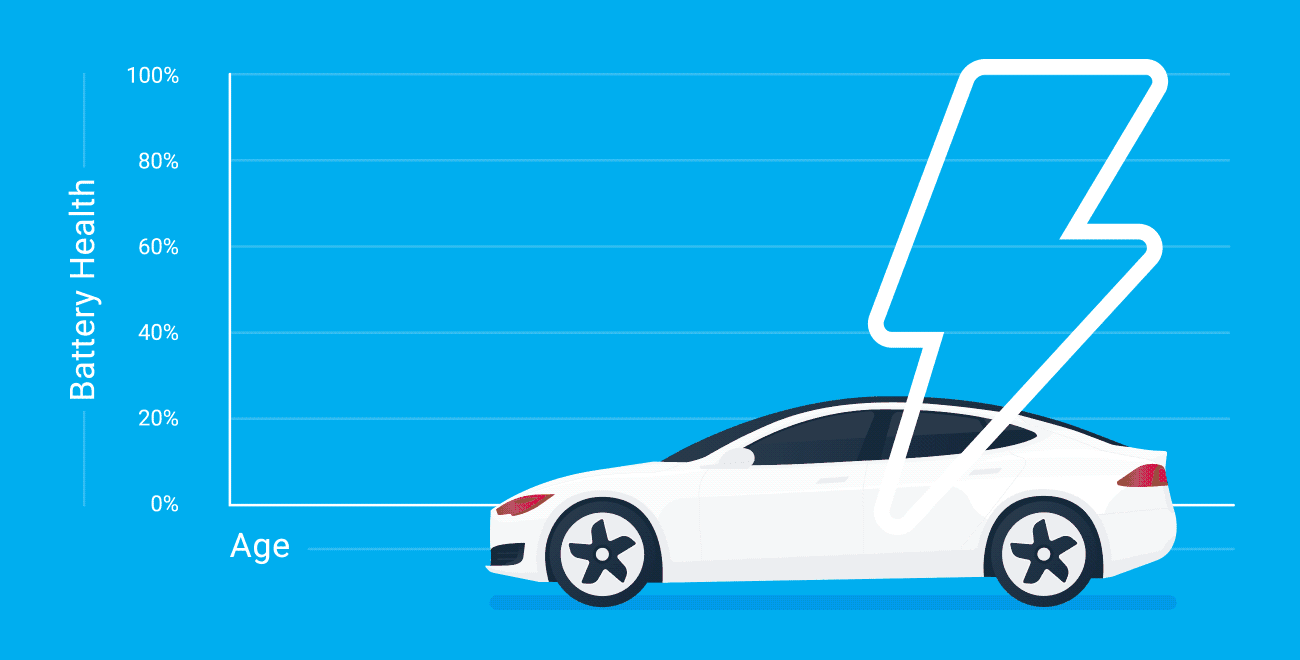Get to know the advantages of electric cars
Thinking about going green? It’s important to analyse the pros and cons before making the jump. Read on to learn about the benefits of electric vehicles.

The growth in popularity of electric vehicles (EVs) over the past decade has been remarkable. After long holding a negligible share of the auto market, EVs now account for a significant portion of new vehicle sales worldwide.
Globally, EV sales doubled in 2021 to a new record of 6.6 million. Experts expect this trend to continue.
This surge in popularity includes consumers and commercial use. Fleet owners are increasingly turning to electric vehicles due to their numerous advantages over traditional internal combustion engine vehicles. EV market revenue could reach AU$4.1 billion in 2023 and ride a compound annual growth rate (CAGR) of 18.05% to hit $9.4 billion by 2028.
Understanding the benefits and drawbacks of EVs is vital for everyone, especially those considering purchasing a vehicle or fleet owners looking to transition. Electric cars are slated to increase from a 2% global share in 2016 to 22% in 2030.
Let’s explore electric cars’ advantages and potential drawbacks so fleet managers can make an informed decision.
Pros and cons of electric cars for fleets
What makes electric vehicles so attractive for companies with fleet needs? They offer high efficiency, zero emissions and reduced maintenance requirements. Because they minimise a fleet’s carbon footprint, they’re a major draw for environmentally conscious businesses.
There are challenges that fleet-based businesses face when adopting EVs, however. Limited driving range, longer refuelling times and higher upfront costs can be hurdles. Advances in EV technology can counter these drawbacks, making EVs increasingly viable for fleets.
The benefits of electric cars
We’ve put together a list of benefits that could help nudge you toward sustainable fleet management. Consider these points when you’re contemplating how EVs could make an impact in your fleet.
Environmental benefits of electric cars
One of the most attractive benefits of electric vehicles is how they contribute to a more sustainable future:
- Zero emissions: EVs produce zero tailpipe emissions. They do not emit harmful pollutants or particulate matter into the atmosphere. This helps improve air quality, especially in urban areas, and cuts down on noise pollution from loud engines.
- Reducing climate change impact: EVs help reduce greenhouse gas emissions by not burning fossil fuels. This is crucial in mitigating climate change, as road transport contributed about 18% of CO2 emissions in Australia in 2020.
- Lower carbon footprint: The carbon footprint of an EV is generally lower than that of a conventional vehicle. As the electricity grid becomes greener, this advantage will only increase.
- Energy conservation: EVs are significantly more energy-efficient than conventional vehicles. This efficient use of energy helps conserve our planet's resources and cut down on carbon dioxide emissions.
- Sustainable charging: With the proper infrastructure, EVs can charge using renewable energy sources like solar or wind power. This further reduces their environmental impact and makes them crucial to a sustainable, low-carbon future.
Cost savings of electric cars
EVs offer significant cost savings over time, which can make a big difference when building a fleet of vehicles. Electric cars have lower fuel costs because the electricity needed to charge them can often be cheaper than petrol. In addition, maintenance costs are lower; EVs don’t have as many moving parts and don’t require oil changes. Finally, the availability of tax credits and grants can offset the higher upfront costs of switching to electric cars.
Over time, these significant savings can add up and make a big difference to your company’s bottom line, especially for fleets, whose costs multiply across several vehicles. That doesn’t even touch on the resale value of EVs, which often retain their worth well. When it’s time to upgrade, you can recoup some of the cost of transitioning.
Improved safety and performance
EVs aren’t just cost-effective. They also offer some safety benefits, including state-of-the-art driver assist and safety features typical of most new vehicles. Electric vehicles benefit from performance enhancements that traditional internal combustion cars don’t have. These include:
- A lower centre of gravity than petrol-powered cars, leading to reduced rollovers.
- Quicker acceleration due to increased torque.
- Better crumple zones due to the absence of a large engine block.
These fleet safety and fleet sustainability features make managing your fleet even easier.
Compliant with changing policies
Businesses aren’t the only ones shifting their priorities to electric vehicles. Governments worldwide are increasingly investing in making EVs more affordable.
Looking specifically at Australia, the National Electric Vehicle Strategy aims to increase the uptake of EVs and improve the overall wellbeing of Australians. Key objectives of this strategy include increasing the accessibility of EVs, which will in turn help encourage demand, and establish resources and infrastructure to enable rapid EV uptake.
Elsewhere, the EU Green Deal demonstrated a commitment to decarbonisation by extending government subsidies for electric heavy-duty vehicles (HDVs) that were due to be phased out. The Electric Vehicles Initiative supports governments in reducing vehicle carbon and air pollutant emissions, further catalysing the clean transportation economy.
The commitment to EVs is a global trend and reflects growing recognition of their environmental benefits and potential cost savings.
Overcoming challenges
For all their benefits, EVs aren’t without their challenges. Fleet managers must be aware of and ready to deal with issues unique to electrified vehicles. Some of these challenges include:
- Shorter drivable distance due to limited battery range.
- Slower charging speeds, which can impact fleet uptime.
- A lack of charging infrastructure, especially in rural areas.
Fleet managers do have plenty of options to offset these problems, however. They can take extra time to plan routes to optimise battery capacity. Determining traffic conditions, weather and terrain will help them plan most efficiently. While advancements in battery technology are leading to longer-range EVs, they still have trouble keeping up with traditional engines.
To overcome slower charging speeds, many route managers turn to DC fast-charging solutions. These chargers can reduce charging time and quickly get vehicles back on the road.
While governments are stepping in to offer subsidies and incentives to promote the installation of charging infrastructure, there are still far fewer stations than necessary. Many electrified fleet managers address this issue by installing dedicated charging stations at their facilities.
Are electric cars worth it?
While the number of internal combustion vehicles on the road still significantly dwarfs that of electric vehicles, there’s still a compelling case for EV adoption. While upfront costs might be higher, the continued priority shift among automakers, governments and delivery companies to rely on EVs is a good sign they’re not just here to stay but to grow.
Ultimately, your decision to electrify your fleet comes down to budget priorities and needs. Analyse your existing fleet’s driving profiles with Geotab’s EV Suitability Assessment to help determine if EV adoption makes sense for your business.
Frequently asked questions
What are the benefits of buying an electric car?
There are several benefits to purchasing an electric car, some of them being environmental improvements and lessened CO2 emissions, as well as financial benefits for owners who do not have to pay for petrol and other maintenance.
What are the benefits of electric cars?
Many EV owners find that they save money and time with their electric vehicle rather than having to spend money on petrol or getting the oil changed. They also can rest assured that their vehicles are not contributing to emissions or damaging the environment compared with petrol-powered vehicles.
What are the tax benefits of an electric car?
Certain businesses and governments may offer tax breaks to those who purchase an electric car to help encourage the transition to electric vehicles.
The Geotab Team write about company news.
Related posts

Sustainability Centre: central hub for sustainable fleet management
January 28, 2025
2 minute read

Electric vehicle sales double in Australia: here are three trends in EV adoption
September 8, 2024
2 minute read

Building a business case for adopting EVs and sustainable fleet strategies
September 7, 2023
3 minute read

A successful electric fleet strategy starts with optimising fleet operations
September 5, 2023
4 minute read

Creating an EV adoption strategy and the next stages of fleet electrification
June 23, 2023
3 minute read

